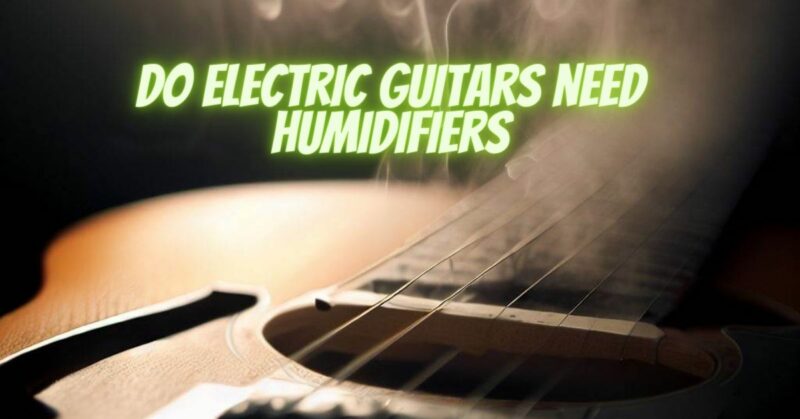Humidity plays a significant role in maintaining the structural integrity and tonal quality of guitars, including electric ones. The question often arises: Is it necessary to use humidifiers for electric guitars? In this article, we’ll delve into the importance of humidity control for electric guitars, the potential effects of improper humidity levels, and the considerations for preserving the condition and performance of these instruments.
Understanding Humidity’s Impact
- Wood and Humidity:
Guitars, including electric models, are primarily crafted from wood. Wood is a porous material that absorbs and releases moisture based on the surrounding humidity levels. Fluctuations in humidity can lead to changes in the wood’s dimensions, affecting playability and structural stability.
- Tonal Consequences:
Changes in humidity can impact the tonal quality of electric guitars. Wood contraction due to low humidity can lead to a tightening of the grain, potentially resulting in a brighter, less resonant sound. Conversely, high humidity levels can lead to a softer, less defined tone.
- Fretboard and Neck:
Electric guitar necks and fretboards are also susceptible to humidity-related issues. Dry conditions can cause frets to protrude, leading to discomfort during play. High humidity can lead to fret sprout and uneven fretboards.
Effects of Improper Humidity Levels
- Warpage and Cracking:
Inconsistent humidity levels can cause the wood to warp, resulting in bowed necks, twisted bodies, or cracked tops. These issues affect playability, intonation, and overall structural integrity.
- Electronics Vulnerability:
While the electronics of electric guitars are less affected by humidity than acoustic models, extreme conditions can still impact solder joints, pickups, and other components over time.
- Finish Damage:
Drastic changes in humidity can cause the finish to crack, peel, or cloud, diminishing the visual appeal of the instrument.
Preserving Electric Guitars with Humidifiers
- Use Case Consideration:
If you reside in an area with consistent humidity levels, electric guitars might be less susceptible to humidity-related issues. However, if you experience extreme seasonal changes, using a humidifier is advisable.
- Humidity Control Devices:
Consider using a guitar-specific humidifier, such as a case humidifier or soundhole humidifier, to regulate the humidity within the guitar’s case or storage area.
- Room Humidity Management:
Storing guitars in a room with controlled humidity levels (ideally around 45-55%) helps mitigate the adverse effects of extreme conditions.
- Case Usage:
When not in use, store your electric guitar in a quality hardshell case with a humidifier. This protective environment can shield the instrument from rapid humidity changes.
While electric guitars are generally less susceptible to humidity-related issues than acoustic guitars, maintaining proper humidity levels remains important for preserving their playability, tonal quality, and structural integrity. The use of humidifiers, especially in regions with fluctuating humidity, can safeguard your investment and ensure that your electric guitar delivers consistent performance and a satisfying playing experience for years to come.


